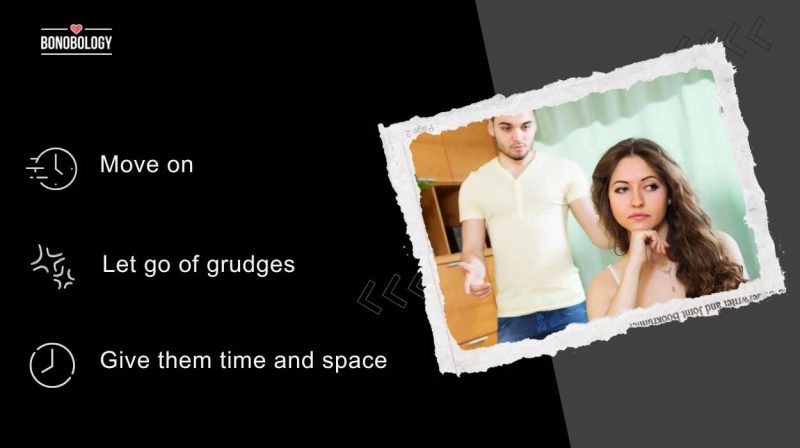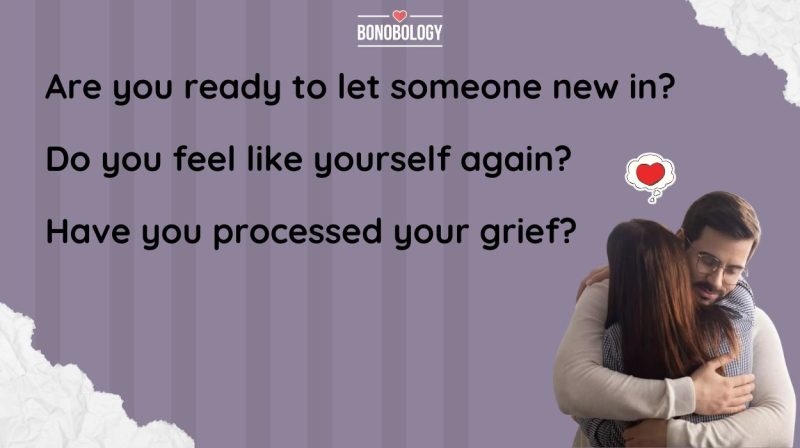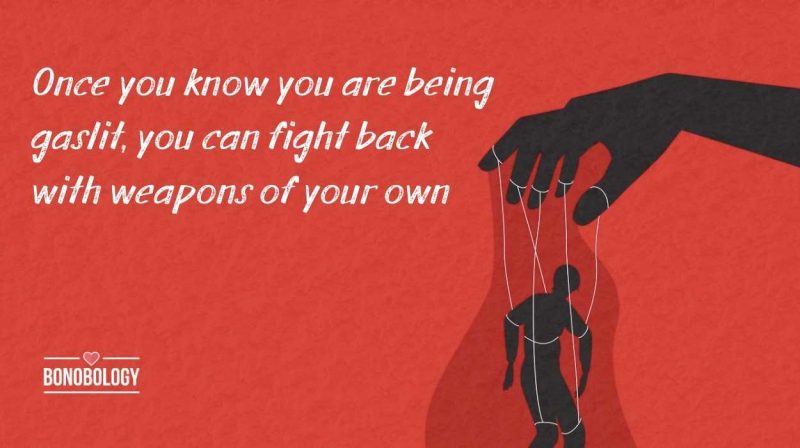We can all agree that there are things that should never be said in anger but giving your partner the cold shoulder is not an acceptable alternative either. We’ve all been taught to practice not speaking to someone when tempers are soaring. However, this cooling-off period should not be confused with the tendency to freeze the other person out. The latter falls in the category of silent treatment – an abusive tendency that does more harm than good. Not knowing how to respond to silent treatment can make the situation worse.
At times, people use the silent treatment to show they are hurting by something that you may have done or said or it can be even something that you may not have any connection with. It should be alarming if they do it on a regular basis. Although someone blackballing you is not your fault, remember that if you have hurt them or done something wrong, an apology from you would greatly benefit your relationship.
They say, giving someone the silent treatment speaks volumes about your character. However, the trouble is that most people fail to recognize how damaging this tendency can be for the person at the receiving end. They might want to use it positively to disengage from an argument but if being quiet in a relationship continues for days, it becomes a tool of abuse or cold violence.
Let’s understand the psychology behind silent treatment, what silent treatment means, how to spot it in a relationship, what to do when someone is mad at you and won’t talk to you, and ultimately, how to handle the silent treatment with dignity, with the help of insights from counseling psychologist Snigdha Mishra (CBT Training from Beck Institute, Philadelphia, and Diploma in Integrated Clinical Hypnotherapy), who specializes in couples counseling for a broad spectrum of issues.
Decoding Silent Treatment Manipulation
Table of Contents
The line that divides healthy distance after an argument and silent treatment manipulation is often very thin. And one that can be blurred easily. We all need time and space to cool off after a fight or a heated discussion, and sure, some people may need more time than others, but that does not entitle us to turn a cold shoulder toward our partners. It’s vital to understand the difference and recognize silent treatment examples for what they’re to make sure that line isn’t crossed.
The psychology behind silent treatment is complicated. It has a positive side and a negative one. And how to react to it often depends on what kind you’re dealing with, to begin with. It is often said that giving someone the silent treatment speaks volumes about your character.
However, before you go hurling this as an accusation at your partner, it’s important to know the difference between being quiet in a relationship as an act of preservation (of the self and the relationship) and using it as a tool of manipulation. This will help you if the latter is the case and you’ll find it easier to decipher the code of how to respond to emotional abuse. Snigdha tells us what silent treatment manipulation is and how to identify it,
- The silent treatment in a relationship can be approached differently depending on its intention, serving as either a positive means to communicate displeasure and motivate behavioral change or a negative tactic of emotional manipulation
- The intentional withdrawal of communication can be constructive when it is used to induce positive behavior change but when used as a manipulation tool it becomes a form of emotional abuse
- The predominant form of it is a premeditated power play, aimed at manipulating a partner into submission. It hampers the relationship and is driven by imbalance, passive aggression, and irrationality
- This kind of manipulation signifies an unhealthy relationship, highlighting the need for effective communication skills. When it is used as a manipulative tool, trouble is brewing, indicating deeper underlying problems in the relationship

The impact of silent treatment
The psychological effects of being ignored by someone you love can be grave. Confronting a partner who consistently uses this tactic is crucial for both the relationship’s survival and one’s own mental health. It inflicts emotional pain and suffering, comparable to the impact of verbal abuse, without leaving physical marks.
An analysis of 74 studies comprising 14,000 subjects indicates that being ignored by a person who is important to you activates the same region of the brain that responds to physical pain. The emotional wounds inflicted in the process can cause lasting damage, which can affect a person’s mental health and alter their instinctive response or behavior in relationships. This makes it even more important to assess and identify silent treatment examples and understand how to respond to emotional abuse.
How To Respond To Silent Treatment?
Is the silent treatment toxic? Is stonewalling abusive? The answers are yes and yes. Avoidant abuse or emotional withholding can prove to be extremely toxic and are typical warning signs of abusive relationships. The silent treatment hurts. Despite its damaging effect, this kind of manipulation is rampant in romantic relationships. Left unchecked, it can cause irreparable harm to the relationship as well as the person who’s forced to deal with it.
It often shakes the very foundation of the bond you share and yet, it is imperative to work on it to maintain a strong and healthy relationship. On the bright side, it’s not a problem that cannot be tackled. How to confront someone who’s giving you the silent treatment? All you need is the right approach and mindset. Here’s everything you need to know about how to handle the silent treatment with dignity and keep your self-respect and self-esteem intact.
Related Reading: Why Do Men Come Back After No Contact — 9 Probable Reasons
1. Get to the root cause of the problem
If you’re dealing with silent treatment in marriage or a long-term relationship, the first step toward putting an end to this toxic cycle is to uncover where it’s stemming from. This understanding will make you better equipped to figure out how to confront someone who’s giving you the silent treatment. Some of the common reasons why people resort to silent treatment as a way of dealing with conflict are,
- Traumatic childhood experiences that lead to difficulty in expressing negative emotions
- Having learned that withholding affection as punishment is the way to handle conflicts
- Narcissistic tendencies
- Blackballing out of spite
Snigdha says, “Silent treatment can be dealt with by first understanding the psychology and dynamics behind it. When someone gives you silent treatment, the recipient must try to understand the reason behind it. Managing it then becomes easy.” The response to how to respond to the silent treatment from a narcissist cannot be the same as dealing with the stonewalling from a partner who is emotionally stunted/immature. Having these answers may be of great help when you are resolving conflict hardened by stonewalling.
2. Try the Sandwich Method approach
When someone gives you silent treatment, you may also be concerned about making a bad situation worse. What if your partner stops talking to you altogether? What if it leads to a huge showdown? What if they prolong it even more? What if after all your attempts, they stubbornly keep their mouth shut? All of these concerns can be addressed if you learn how to confront someone who’s giving you the silent treatment smartly.
The Sandwich Method may well be your best option if you are wondering how to break the ice after an argument. It’s a technique to offer constructive criticism without aggravating the other person or making them more emotionally distant than they already are. The crux of this approach is to use positive reinforcement through ‘I’ statements instead of blame-shifting through ‘You’ remarks. Here are a few examples:
- Instead of saying, “You never listen to me!” try expressing, “I would appreciate it if we could have a more open and active conversation.”
- Instead of accusing, “You’re always late!” try stating, “I think it would be helpful if we could respect each other’s time.”
- Instead of criticizing, “You never help with household chores!” try discussing, “Let’s find a healthy way to better distribute household responsibilities to ensure a fair and balanced partnership.”
- Instead of blaming, “You ruined our plans!” try saying, “I feel disappointed and would like to work together to find a solution that satisfies both of us.”
Maintain a calm and gentle demeanor, making the other person feel comfortable to continue the conversation; if they remain silent or walk away, stay composed and approach them at a later time. Even if you get into a fight and they keep resorting to silent treatment after a fight, you will have to find it in yourself to keep your wits together.
Related Reading: 12 Ways to Fix A Toxic Relationship
3. Refrain from responding to silent treatment with silence
“Approach it logically, without emotional reactions, as it may signify silent abuse or a milder form of seeking attention, and understanding the underlying reasons simplifies how to respond,” advises Snigdha. Yes, we’ve all heard the proverb ‘diamond cuts diamond’. Except in this case. Responding to silent treatment with silence might seem very tempting. But it will only set a toxic ‘who blinks first’ game in motion that helps no one. Not you, not your partner, and certainly not your relationship. Nor should you take this as a license to bombard your partner with verbal abuse.
All this will lead to widening the distance between you two and prove detrimental to the relationship as well as your psyche. The effective way of dealing with silent treatment in a relationship is to extend an olive branch. Try to validate their feelings as best as you can. Being the first to contact after silent treatment requires you to swallow your pride and show that you really want to get past the conflict and make this relationship work.
This helps create an atmosphere of trust and comfort, where the other person can open up and talk about their feelings honestly. The bottom line is, you have to be mindful of your approach if you want to break this pattern and build a healthy relationship. However, this approach only works best when an emotional hurdle is triggering the behavior. If you’re looking for ways to respond to the silent treatment from a narcissist or a serial abuser, this is not it.
4. Try to let go of your grudges

The importance of forgiveness in a relationship cannot be stressed enough. It is one of those underrated paradigms that can work like magic in reinstating love and faith even in crumbling relationships. So, the answer may well lie in letting go of your grudges and looking for ways to move on from conflict.
Particularly, if you’re figuring out a healthy way to respond to a borderline silent treatment. In this case, it may help to cut your partner some slack, forgive them for escalating a fight by freezing you out, and try to understand why do people give the silent treatment.
Sure, overcoming the hurt caused by a loved one isn’t easy. But try you must. Instead of focusing on how you’ve been wronged, look inward and explore your shortcomings and faults. Then, apologize for them. Not only will you feel light and baggage-free but the act will also thaw the ice between you and your partner. Once that’s done, emerging from the tendency to resort to such behavior will become easier.
5. Hold off in making the first move
As the person on the receiving end of this silent abuse, it is not incumbent upon you to reach out every single time. Especially if you’re trying to understand how to respond to the silent treatment from a narcissist. In such situations, waiting it out can often prove to be the best approach to make the other person see the impact of their actions. Confronting someone giving you the silent treatment repeatedly requires you to hold your own.
“If it’s harmless attention-seeking, you can give your partner some attention and move on. In cases of abusive controlling behavior, let the person break the ice, avoid validating their actions, and seek advice to address abusive controlling behavior and rebuild the relationship,” says Snigdha.
If your partner pulls back on all communication with you just to prove a point or to get you to toe their line and wants you to be the first to contact after silent treatment, then extending an olive branch isn’t your best recourse. Especially if this has become a pattern. It might prove to be damaging to your self-esteem. Instead, you must wait for them to come to you. However, when they do approach to make amends, do not shut them out with a cold shoulder of your own. Remember there is no substitute for effective communication in a relationship.
Related Reading: Love Me Best! The Wife Who Had To Be The Centre Of Attention
6. Give them time and space
How to react to silent treatment and break the deadlock? If you’re taking the above-mentioned approach of letting your partner come to you, make sure you give space and time to the other person until they’re ready to make the first move. When doing that, do let them know that you’re waiting to talk things out.
While you wait, don’t spend all your time and energy on questions like, “Is the silent treatment immature?” “What is the meaning of silence in a relationship?” This will only make your partner’s silence more overwhelming and hard to deal with. Instead, occupy your mind space with an activity you enjoy. That way, when you do talk things out, you’ll be in a better frame of mind to understand the other person’s perspective. Knowing how to break silence in a relationship and when is a key insight that can empower you to deal with this tendency better.
7. Seek help
If you’ve exhausted all your options and made earnest efforts but the question of how to win the silent treatment still stands, it may be time to seek advice. Professional help in the form of couple therapy – or even individual therapy – can be extremely beneficial in recognizing and sorting out some fundamental issues in the relationship.
“Sometimes a partner gives you a cold shoulder because they do not know how to process their own feelings. You may be left feeling like dealing with silent treatment in marriage or your relationship is getting harder and harder, whereas your partner may not even know another way to respond to a difference of opinion or an argument,” says Snigdha.
You may start seeing your self-esteem gradually withering away. In such cases, a professional’s perspective can help straighten things out. If you’re considering seeking help, skilled and experienced counselors on Bonobology’s panel are here for you.

8. Have an honest conversation with yourself
If you’ve tried confronting someone for mistreating you with silence but made no headway, it may be time to look inward for answers. Your partner may not be ready for a conversation but that doesn’t mean you have to avoid critical questions too. Have an honest conversation with yourself and try to understand which underlying issues are triggering this repetitive ostracization.
At this point, it is also important to reflect on whether this equation is taking a toll on your body and mind. If yes, ask yourself is any depth of love worth such toxicity? Do you want to stay in such an unhealthy relationship? If you think that your partner deserves a chance because they are otherwise loving and caring, and you are willing to make the effort to work through this issue, then you can look for ways to handle it.
Related Reading: 9 Signs You Have Serious Communication Issues In Your Relationship
9. Move on
How to respond to the silent treatment from a narcissist or a serial abuser? It’s a question that often leads to dead ends because the other person is deliberately using silence as a tool to exert control over you. That means the intent to make amends is missing.
In such situations, moving on is often better than staying and spending your everyday life wondering how to win the silent treatment. You may love your partner deeply but you will not find your happiness or peace of mind with them. Sometimes, the right way to deal with such situations is to put yourself first. And this is one such situation.
Related Reading: 12 Warning Signs Of Gaslighting And 5 Ways To Deal With It
10. Know that it wasn’t your fault
Even though the perpetrator of silent treatment will make you believe so, you’re not to blame for their behavior. So, take a deep breath, shake off the blame, and focus on healing yourself. The impact of such forms of abuse is often hard to identify but runs deep. Seek the help you need, and take care of yourself, so that the trauma caused by the violence of silence does not cast a shadow on your future intimate relationships.
Key Pointers
- The silent treatment is harmful as it creates emotional distance, erodes trust, and hampers effective communication, hindering conflict resolution
- To cope, stay calm and composed, resisting the urge to retaliate or escalate the situation
- Reflect on your own behavior and consider if there may have been any actions or words that contributed to the silent treatment
- Initiate open and respectful communication, expressing your willingness to address any concerns or conflicts
- If the silent treatment persists, seek mediation or professional help to facilitate a constructive dialogue and resolve underlying issues
Responding to the silent treatment necessitates patience and empathy. Yes, sometimes being silent is better than saying things you’d feel guilty about later. But you need to understand where the line lies. Avoid retaliating or engaging in negative behaviors. Instead, strive for understanding and open communication. Maintain your composure, offer space if needed, and actively listen when the person is ready to talk. Establish boundaries and seek support from trusted individuals and positive people. With these effective strategies, you can foster better communication and build stronger connections.
This article has been updated in June 2023
FAQs
The silent treatment psychology can come from a toxic childhood, narcissism, or a person’s inability to process their emotions. Attention seekers may resort to such behavior but some use it as a manipulative tool. Call it silent treatment abuse.
It is very painful because a lack of dialogue or effective communication skills leaves the person at the receiving end of silent treatment grappling with questions. They just don’t understand why their partner is behaving this way. Being dumped by silent treatment is even worse because they never get closure.
Sometimes silent treatment is a way of disengaging from an argument and giving your partner time to cool off. Short spurts of it can be good for a relationship and can help avert ugly fights. But if prolonged, it can lead to a toxic and abusive relationship.
Like gaslighting, the silent treatment is also a kind of manipulation where a person withdraws communication to manipulate and control their partner. You could keep apologizing and asking what’s wrong, but your partner would stay mum and not reply.
Has Your Husband Checked Out Emotionally? 12 Signs Of a Failing Marriage
No Contact With A Narcissist – 7 Things Narcissists Do When You Go No Contact
Your contribution does not constitute a charitable donation. It will allow Bonobology to continue bringing you new and up-to-date information in our pursuit of helping anyone in the world to learn how to do anything.





















